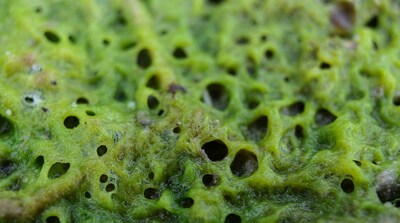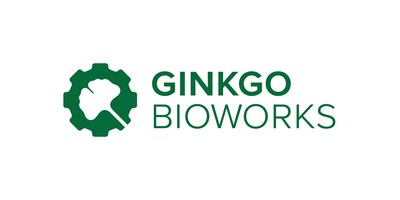U.S. Department of Energy Awards Team Led by Ginkgo Bioworks Funding to Develop Algal Crop Protection Solutions
- Algae-based biotechnology can be used to drive forward clean energy solutions, such as sustainable aviation fuel, yet scaling algal biotechnologies for such purposes faces major barriers
- The DOE has awarded a Ginkgo-led team — which also includes partners from Pacific Northwest National Laboratory, Colorado School of Mines, and Global Algae Innovations — to build revolutionary algal crop protection solutions
- The team will leverage its expertise in applied algal biology, metagenomics, high-throughput screening, and adaptive laboratory evolution to work to design algal crop protection solutions as more environmentally-friendly alternatives to conventional chemical pesticides, while enhancing productivity
Fueling the Future with Algae-Based Biotechnology
The awarded project is part of DOE's investment in the development of clean energy solutions that reduce greenhouse gas emissions. More specifically, this project is focused on improving algal biotechnology to enable increased production of affordable biofuels and bioproducts from atmospheric CO2 at large scales.
Microscopic Pests Threaten Valuable Algal Crops
A major barrier to scaling algal biotechnologies is predation on algae by microscopic 'pests' in open outdoor ponds. Current algal pest management strategies are generally not specific to a singular pest and include chemical or environmental control methods that can negatively impact algal productivity and increase pest resistance. There is a clear need for algal crop protection solutions that are highly selective against specific algal pests, are safe to use in aquaculture feeds for animal consumption, and do not produce detrimental environmental impacts commonly associated with traditional pesticides.
Environmentally-Friendly Solutions for Algal Crop Protection
Antimicrobial peptides (AMPs) are short chains of amino acids exhibiting antimicrobial activity that are considered a more environmentally-friendly alternative to conventional chemical pesticides. A wide range of organisms, including bacteria, plants, and animals naturally produce AMPs.
The Ginkgo-led team will work to develop new algal pest-specific AMPs and at the same time use powerful adaptive laboratory evolution (ALE) capabilities to increase the tolerance of the algae and of their protective microbiome to AMP treatment. This combination of AMP treatment and evolved AMP tolerance holds significant potential for reducing the frequency of pest-related crashes in commercial algal ponds—during which the ponds can rapidly go from healthy and vibrant to sick and dead—and simultaneously increasing productivity. The team will also work to augment their understanding of outdoor pond ecologies via metagenomic and transcriptomic screening.
"We built our platform to help partners in sustainability like the DOE to enable novel and improved energy solutions. We're excited to leverage our uniquely powerful AMP and adaptive laboratory evolution (ALE) technologies," said Dr. Nikos Reppas, Senior Foundry Lead at Ginkgo Bioworks. "This project is built around a world-class team of research and development partners, and we're proud to do our part to bring this promising crop protection strategy forward. We are eager to play a critical role in this space for our government partners and commercial algae cultivators around the world."
If successful, this BETO investment has the potential to unlock a new suite of algal crop protection strategies to enhance productivity in outdoor environments. In the future, such aquaculture protection strategies could be used to enhance the economic viability of algae-based biomanufacturing to produce a range of products such as biofuels, nutritional supplements, cosmetics, and bioplastics from atmospheric CO2 and sunlight, further enabling collective efforts toward carbon neutral production processes.
About Ginkgo Bioworks
Ginkgo Bioworks is the leading horizontal platform for cell programming, providing flexible, end-to-end services that solve challenges for organizations across diverse markets, from food and agriculture to pharmaceuticals to industrial and specialty chemicals. Ginkgo's biosecurity and public health unit, Concentric by Ginkgo, is building global infrastructure for biosecurity to empower governments, communities, and public health leaders to prevent, detect and respond to a wide variety of biological threats. For more information, visit ginkgobioworks.com and concentricbyginkgo.com, read our blog, or follow us on social media channels such as X (formerly known as Twitter) (@Ginkgo and @ConcentricByGBW), Instagram (@GinkgoBioworks and @ConcentricByGinkgo), Threads (@GinkgoBioworks) or LinkedIn.
Forward-Looking Statements of Ginkgo Bioworks
This press release contains certain forward-looking statements within the meaning of the federal securities laws, including statements regarding the capabilities and potential success of the partnership and Ginkgo's cell programming platform. These forward-looking statements generally are identified by the words "believe," "can," "project," "potential," "expect," "anticipate," "estimate," "intend," "strategy," "future," "opportunity," "plan," "may," "should," "will," "would," "will be," "will continue," "will likely result," and similar expressions. Forward-looking statements are predictions, projections and other statements about future events that are based on current expectations and assumptions and, as a result, are subject to risks and uncertainties. Many factors could cause actual future events to differ materially from the forward-looking statements in this press release, including but not limited to: (i) volatility in the price of Ginkgo's securities due to a variety of factors, including changes in the competitive and highly regulated industries in which Ginkgo operates and plans to operate, variations in performance across competitors, and changes in laws and regulations affecting Ginkgo's business, (ii) the ability to implement business plans, forecasts, and other expectations, and to identify and realize additional business opportunities, (iii) the risk of downturns in demand for products using synthetic biology, (iv) the uncertainty regarding the demand for passive monitoring programs and biosecurity services, (v) changes to the biosecurity industry, including due to advancements in technology, emerging competition and evolution in industry demands, standards and regulations, (vi) our ability to realize the expected benefits of merger and acquisition transactions, (vii) the outcome of any legal proceedings against Ginkgo, including as a result of recent acquisitions, (viii) our ability to realize the expected benefits from and the success of our Foundry platform programs, (ix) our ability to successfully develop engineered cells, bioprocesses, data packages or other deliverables, and (x) the product development or commercialization success of our customers. The foregoing list of factors is not exhaustive. You should carefully consider the foregoing factors and the other risks and uncertainties described in the "Risk Factors" section of Ginkgo's quarterly report on Form 10-Q filed with the
GINKGO BIOWORKS INVESTOR CONTACT:
investors@ginkgobioworks.com
GINKGO BIOWORKS MEDIA CONTACT:
press@ginkgobioworks.com
![]() View original content to download multimedia:https://www.prnewswire.com/news-releases/us-department-of-energy-awards-team-led-by-ginkgo-bioworks-funding-to-develop-algal-crop-protection-solutions-302018102.html
View original content to download multimedia:https://www.prnewswire.com/news-releases/us-department-of-energy-awards-team-led-by-ginkgo-bioworks-funding-to-develop-algal-crop-protection-solutions-302018102.html
SOURCE Ginkgo Bioworks









